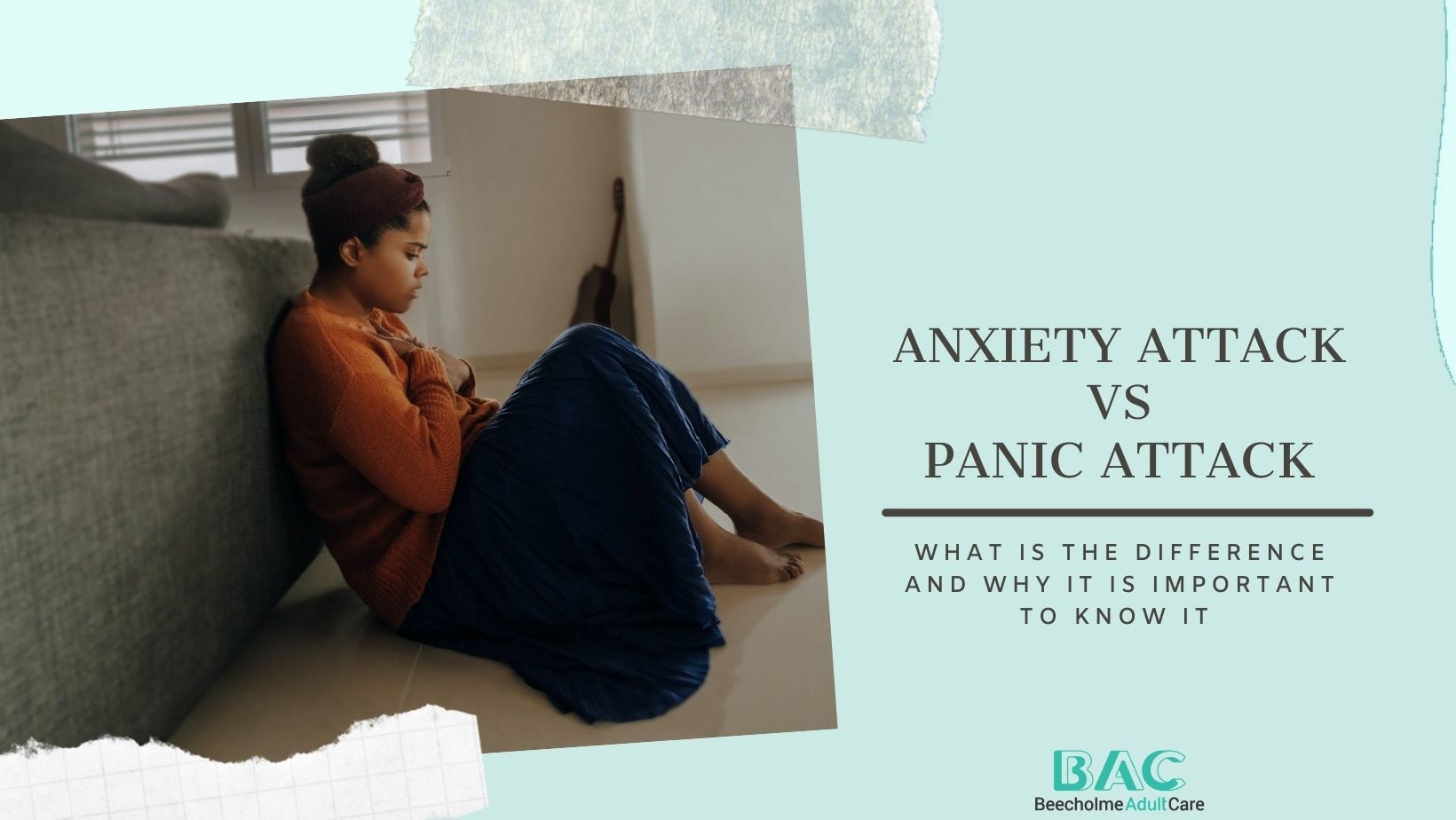Panic attack and anxiety attack are different
Knowing the difference between an anxiety attack and a panic attack is crucial in order to find the appropriate treatment or develop useful coping skills.
By understanding the symptoms of an anxiety attack vs. panic attack, you can more efficiently address your mental health and the issues behind the attacks.
What are panic attacks and anxiety attacks?
Both a panic attack and an anxiety attack cause you to feel intense, overwhelming emotions. While these terms are sometimes used interchangeably, they’re not exactly the same thing. Both panic and anxiety attacks activate your nervous system to send you into fight-or-flight mode, causing physical and emotional symptoms. Their differences lie in what causes the attack.
Anxiety Attack
Anxiety attacks are when a specific trigger occurs, such a stressful situation, where a person is already feeling anxious and the symptoms of anxiety – such as racing heart or pain in the stomach – worsens. An anxiety attack is gradual and has symptoms that are less severe than a panic attack, but can still be distressing for those who struggle with managing anxiety.
Symptoms of an anxiety attack can vary. Some people may only experience a few mild symptoms of anxiety, while others may experience a wider variety of more intense symptoms.
Common symptoms of anxiety include:
– Insomnia
– Restlessness
– Irritability
– Feeling on edge
– Racing heartbeat
– Muscle tension
– Nausea
– Shaking or sweating
Panic Attack
Panic and anxiety share many emotional and physical symptoms, and someone can be suffering from both at the same time. But whereas anxiety is more anticipatory and gradual, panic attacks are an abrupt symptom or culmination of anxiety that manifest much more intensely and suddenly, almost out of the blue. Panic strikes with an overwhelming sense of fear. Panic attacks are sudden, unreasonable feelings of fear and anxiety.
A person suffering from a panic attack can feel loss of control and even fear safety or death.
Symptoms of a panic attack include:
– Chest pain
– Nausea
– Fear of losing control or feeling like you’re going to die
– Intense feeling of terror
– Elevated heart rate
– Sweating
– Tingling or numbness in fingers or toes
– Trembling or shaking
Symptoms usually peak within ten minutes after an attack starts. The symptoms often disappear soon after. Some people become so fearful of these attacks that they develop panic disorder.
What causes anxiety and panic attacks?
What we experience while anticipating a bad outcome of a future event is called anxiety. It can lead to muscle tension and a feeling of uneasiness.
A panic attack is completely different. It is associated with a very abrupt onset of intense fear because of a sense of threat happening right now.
While anxiety attacks occur gradually, panic attacks happen suddenly.
While anxiety attacks are usually caused by stressors in your life, panic attacks don’t have an apparent trigger.
In contrast to anxiety attacks, panic attacks sneak up on you. Whether you’re driving a car, having dinner or giving a presentation, panic attacks can strike at any time.
Panic attacks trigger severe and disruptive physical reactions, even when there is no real danger or apparent cause.
Diagnosis for a panic attacks and an anxiety attack
In the past, it was more difficult to diagnose panic and anxiety attacks. The symptoms that come with them are similar to those of many other illnesses, including heart disease, thyroid disorders, and breathing disorders. If you have an attack, you should see your doctor to make sure that the cause of these symptoms is not a serious medical condition.
If you find yourself having panic or anxiety attacks, or anxiety in general, a therapist or mental health professional can help to pinpoint these causes. They may also be able to help diagnose if you have a panic or anxiety disorder that triggers the attacks.
Why we need to make sure people understand the difference
If you don’t understand the terms and their differences, you might end up treating a panic disorder that you don’t actually have. In the worst case scenario, you could even become dependent on a medication you don’t need. That’s why it’s vital to seek out information about your specific condition and work with someone who is knowledgeable about the challenges that your unique condition presents.
Find the right treatment for Panic & Anxiety
Whether you’re struggling with panic attacks or an anxiety attacks, you may feel like your symptoms are out of control. The support of a qualified therapist can change all of that. They can help you recognize whether you’re dealing with a panic attack or anxiety attack and then create a plan customized to your mind, body, and spirit.
Contact us or directly book a free session with one of our therapists, and we will work together to overcome your anxiety and deal with your panic attacks.
Don’t be afraid to seek professional help !

